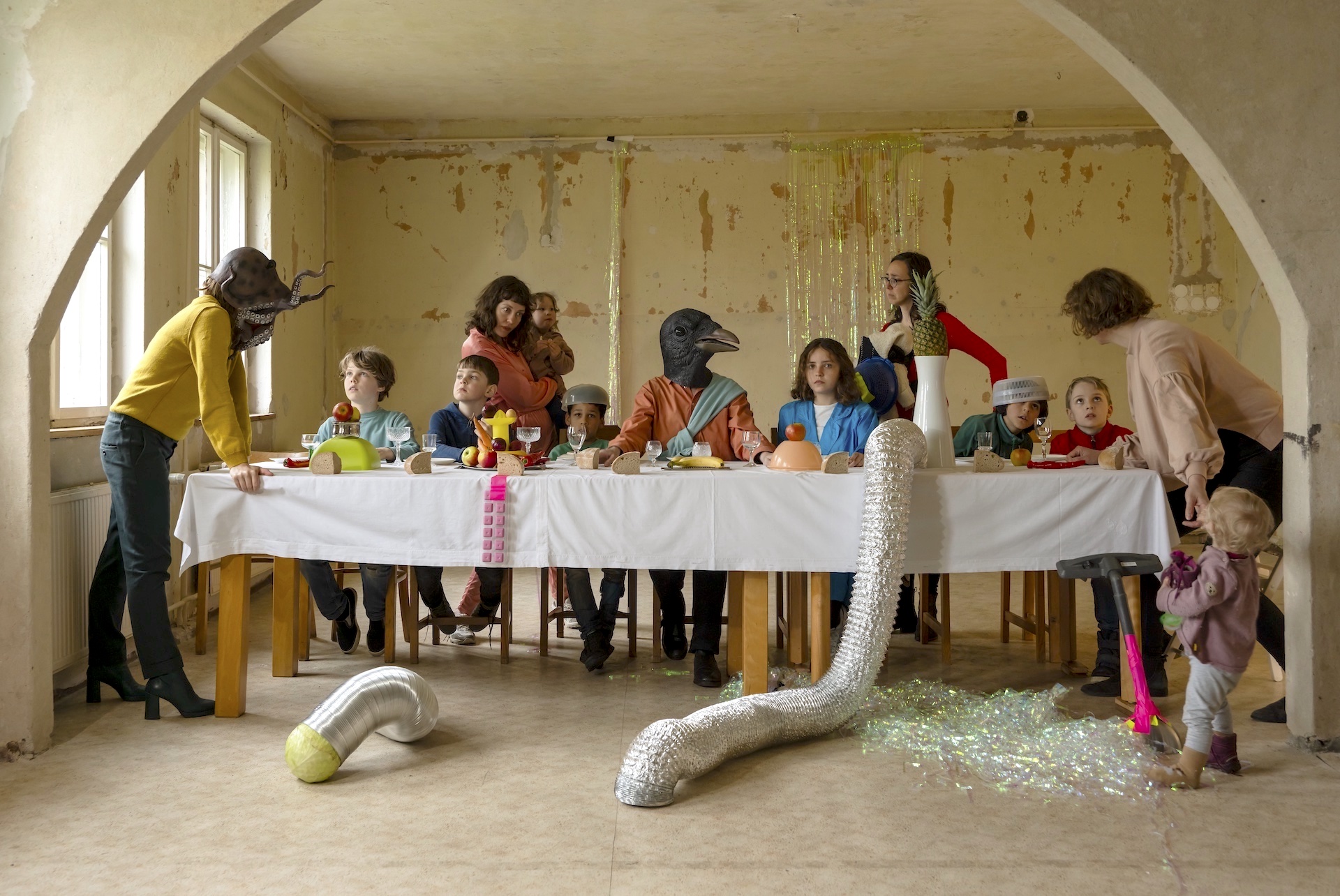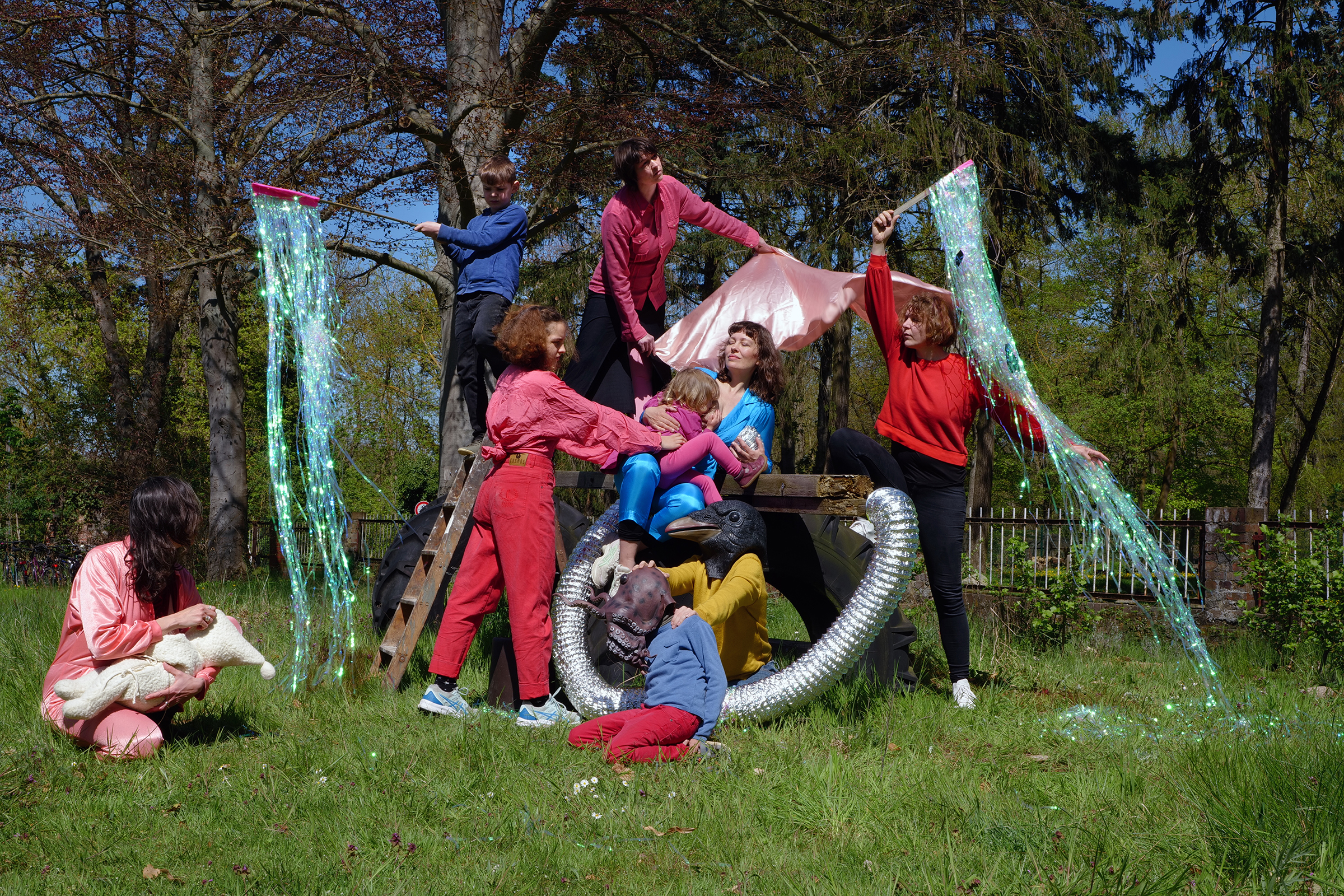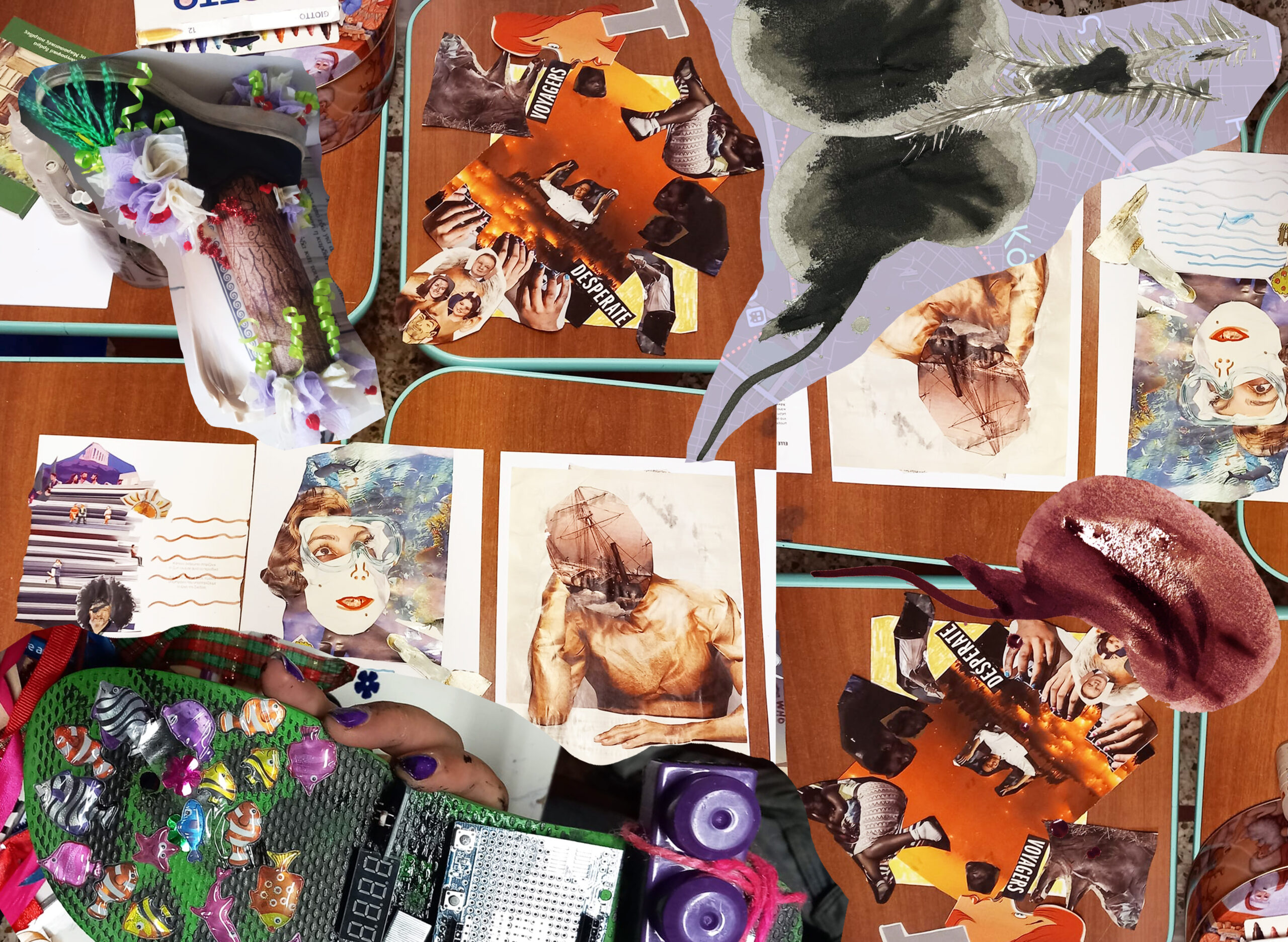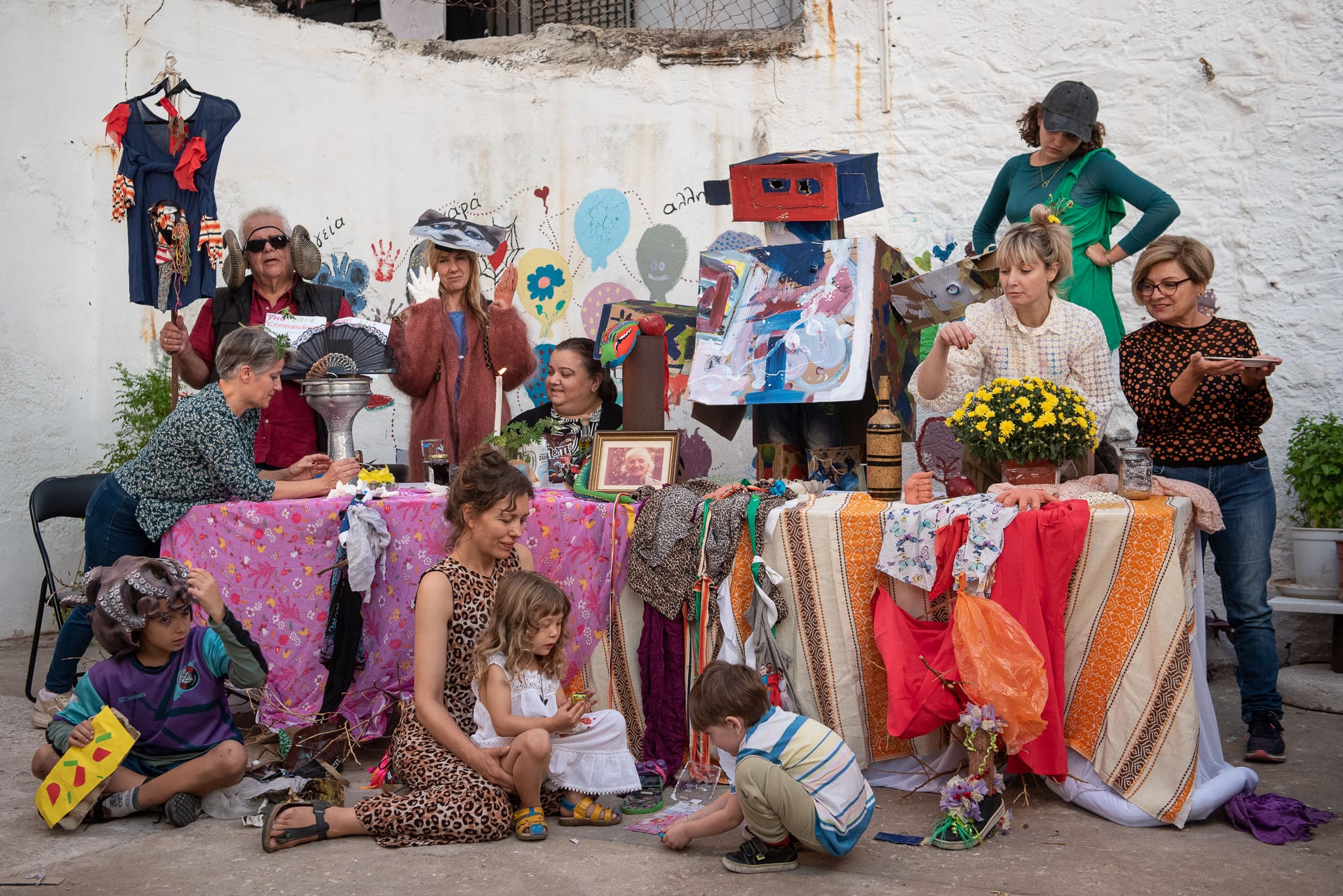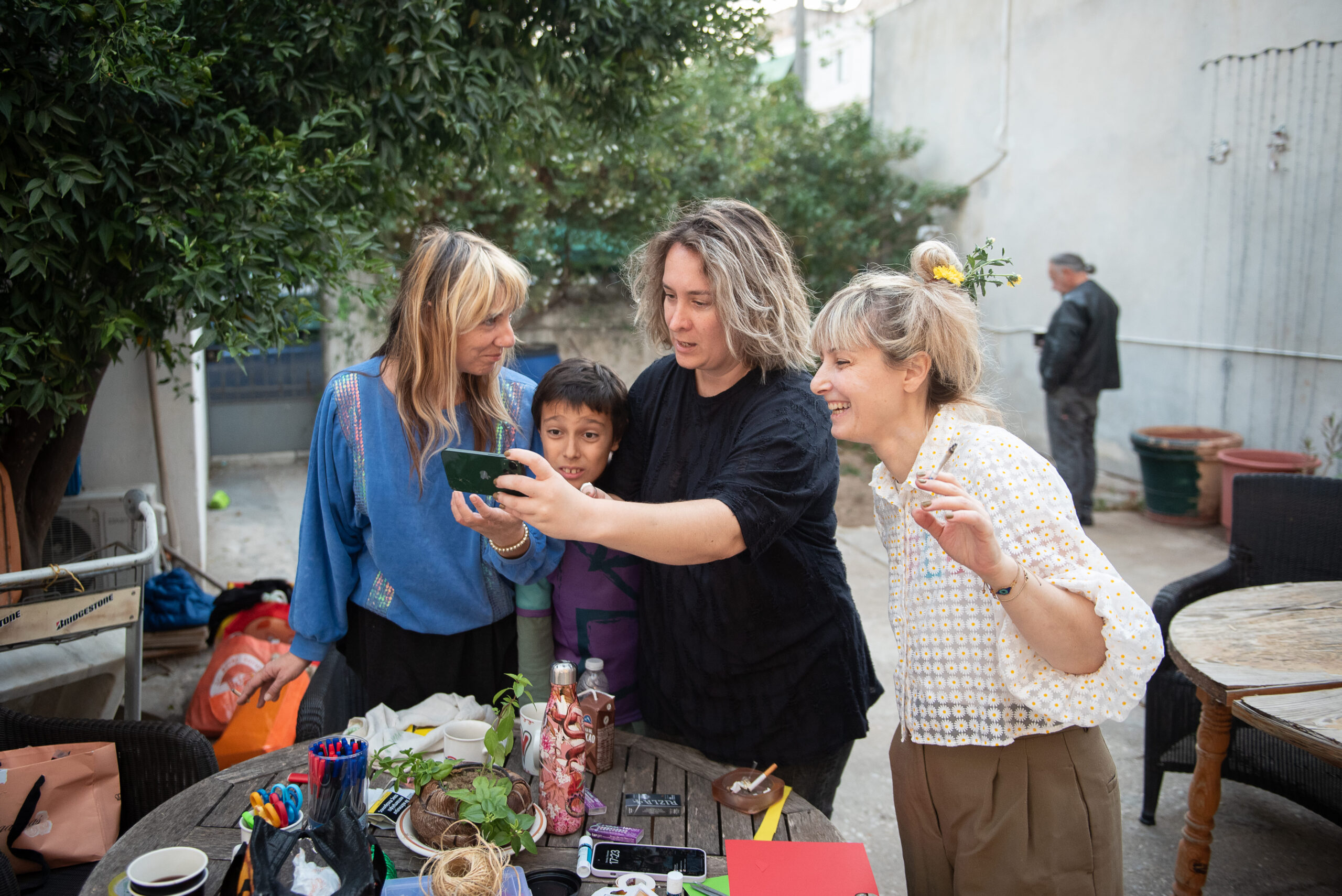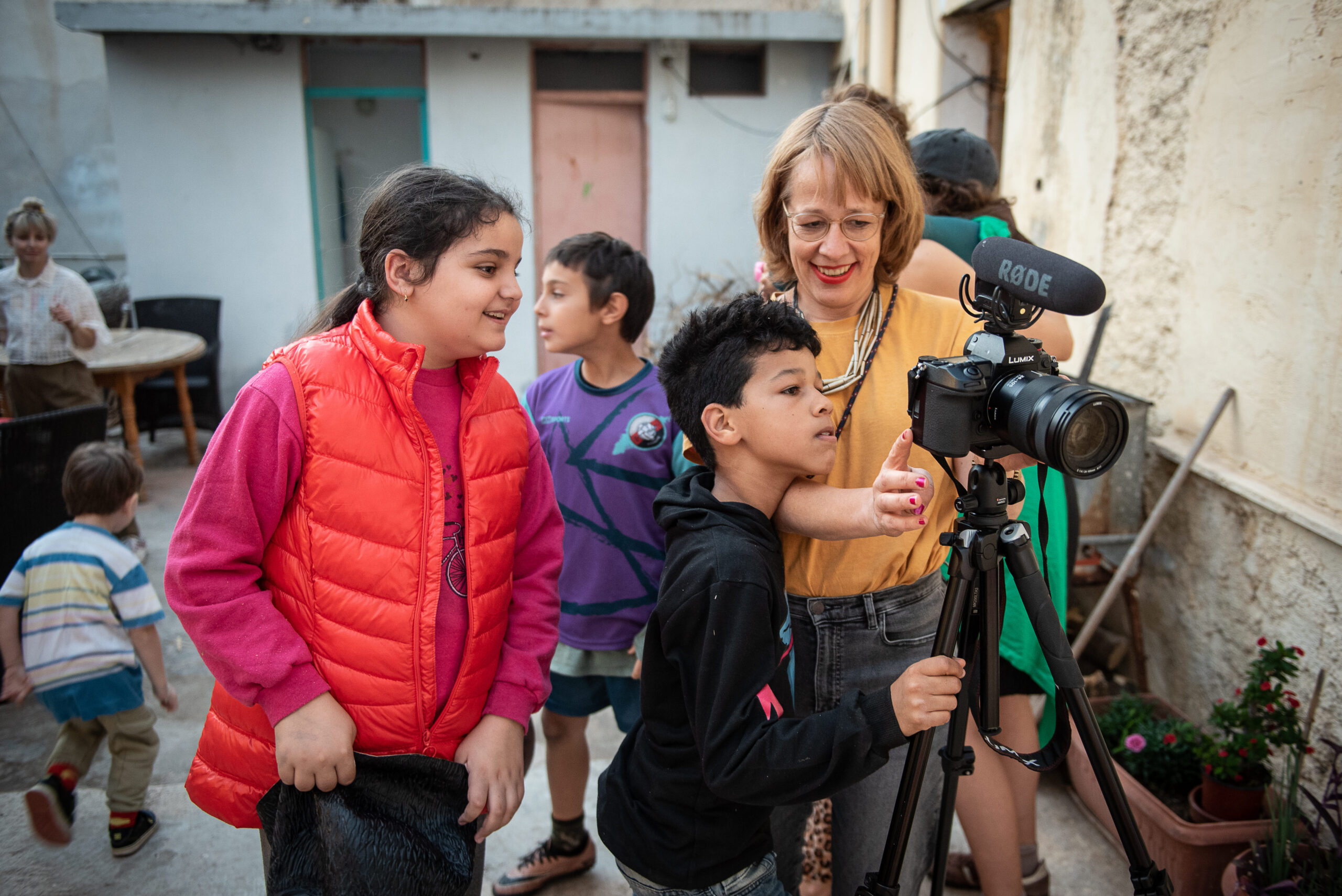can you see me?

Dates
Contributors
Curation
Communications
Since 2019, TAVROS has been instigating creative programmes and workshops guided by fieldwork and the unique characteristics and needs of local Tavros communities.
can you see me? is a weekly two-hour artistic workshop with/for women from the Tavros Solidarity School [1] focusing on the area’s past and present and its social, political and refugee dimensions. It stems from the need for women, mothers, workers, social volunteers who are—more often than not— underrepresented, to become more visible in the everyday social fabric and to have access to a much needed creative outlet. Through archival research by artist Eva Giannakopoulou, this series of group meetings, led by the latter, will explore and highlight the role women have played in the area of Tavros, while both individual and collective artworks referring to traditionally “female” crafts, such as sewing, embroidery and weaving, will be created.
Exploring further notions of care-giving and self-care, the workshop aims to highlight the role women workers from the neighbourhood have played in the past: their political activism during the National Resistance, their contribution to the city’s industrial development, as well as their key role in the area’s social set up through tactics of care and genealogical and familial interconnections.
Through artistic workshops and the coexistence of professional and amateur artists of all ages, can you see me? attempts to use “female” methodologies of care bringing communities together to encourage knowledge exchange. can you see me? functions as a historical and social mapping of female agency. The programme aims to empower local participants through interaction with archival material from the area (carriers of civic and personal memories) as well as through awareness of contemporary tools of creative expression. As art theorist Else Krasny points out, “Thinking, like art-making or curating, does not happen in isolation, but rather in conversation”. [2]
Wanting to amplify the Solidarity School’s inclusive and intergenerational nature, we have invited two members of the Berlin based female feminist collective MATERNAL FANTASIES (Mikala Hyldig Dal and Magdalena Kallenberg) alongside their children in late October, to lead a three-day workshop To Become One or Two or Many with members of the Solidarity School. Participants of all ages alongside Dal and Kallenberg and other mothers-artists will be invited to create a new artwork together; a re-enactment of The Last Supper, The First Supper exploring and giving space to a myriad of ecological, culinary, social, urban, mythological, speculative and imaginary realities of Tavros. The First Supper is MATERNAL FANTASIES most recent work and is a re-imagination of Leonardo Da Vinci’s biblical The Last Supper: Instead of the all male ensemble of the historical painting, their re-enactment features women, children and fantastical beings. In parallel to the workshop, an open public discussion at TAVROS will see MATERNAL FANTASIES members and artists, Dal and Kallenberger alongside Eva Giannakopoulou, sharing their intergenerational methodologies of working as mothers, artists, citizens, while exploring together notions of care-giving, self-care and maternal identities. In this way, To Become One or Two or Many provides the springboard for further collective learning which is at the heart of can you see me?
Wednesday, 30 October 2024, 19:00 | Discussion in English
To Become One or Two or Many
Speakers: Mikala Hyldig Dal, Magdalena Kallenberg, Eva Giannakopoulou
Location: TAVROS
MATERNAL FANTASIES is an interdisciplinary group of international artists and cultural producers founded in 2018 and based in Berlin. They engage with the discourse on care work through collective artistic processes while enhancing the visibility of contemporary intersectional positions addressing motherhood(s) in and beyond the arts. From writing autobiographical responses to classic feminist texts to creating film and theatre pieces based on children’s games, their art practice favours inclusive community-oriented experiments as alternatives to traditional structures of art production. Bridging theory and practice, their strategy transforms research on motherhood(s), care work and representation into frameworks for immersive modes of critique and participation – and towards imaginations of new futures. Artist and curator Mikala Hyldig Dal and artist, writer and researcher Magdalena Kallenberg, members of MATERNAL FANTASIES to join artist Eva Giannakopoulou in an open public discussion where we will set out to create new social and artistic infrastructures – together – by asking: How can we join forces with peers across borders and boundaries? How can we (re)distribute artistic responsibilities as well as domestic and emotional labor? How can we empower each other and build alliances across differences?
Saturday, 2 November 2024, 18:00-20:00 | Open Studio
To Become One or Two or Many
Location: Tavros Solidarity School
An integral part of MATERNAL FANTASIES’ practice is the performative exploration, critique and
re-imagination of seminal art historical works. Their recent work The First Supper is a re-imagination of Leonardo Da Vinci’s biblical The Last Supper: Instead of the all male ensemble of the historical painting, their re-enactment features women, children and fantastical beings. Instead of the reference to death and sacrifice inherent to historical depictions of the last supper, they seek the connection to life and maintenance; how we care for and carry each other, how we are intertwined in an intricate web of
socio-ecological beings; how our lives occur in continuation of the lives of others, across generational lines. Over the course of two days, a fantastical dinner setting is created, developing dishes, collective rituals and individual storytelling. On the third day, we invite the public along with friends and family, to join our performative dinner. The event will be intersected with collectively performed tableau vivants which are photographed and will subsequently be exhibited as a collective artwork.
[1] Tavros Solidarity School was launched in 2017, by local Tavros residents and is a member of the network of Social Solidarity and Collaborative Economy, which was formed 5 years prior with the aim of mutual support and inclusiveness with the slogan “No one should stand alone in the face of the crisis”. It is self-managed, exclusively run by volunteers and operates with tandems and time exchanges, relying on the equal participation of all. Parents, students and teachers alike all take part in the assembly, instigating rewarding actions to all. The Solidarity School of Tavros is housed in the Pontian Association on Chr. Smyrnis 24 street; its strategic planning meetings as well as discussion forums are open to all residents of Tavros.
[2] Archive, Care, and Conversation: Suzanne Lacy’s International Dinner Party in Feminist Curatorial Thought, p. 14. E. Krasny continues, quoting the entry from Josef M. Stowasser’s Latin-Germanic Dictionary, Lateinisch-deutsches Schulwörterbuch (Munich: Oldenbourg Schulbuch GmbH, 1994), how “… The Latin root conversatio means contact, moral conduct and way of living. Conversation as a way to conduct one’s life is co-implied with others; it includes the turn to others.”
